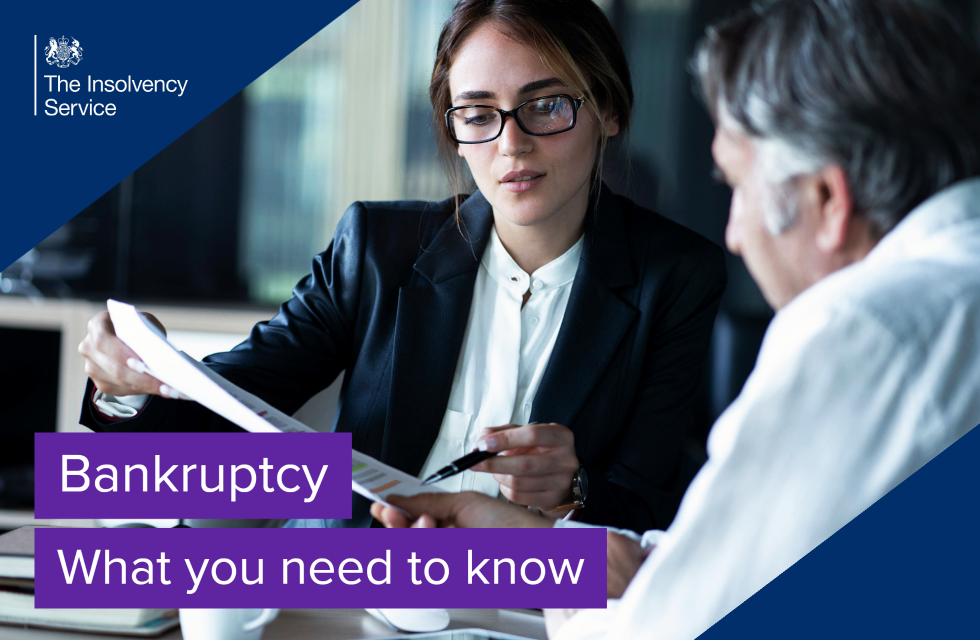Insolvency Practitioner Things To Know Before You Get This
Insolvency Practitioner Things To Know Before You Get This
Blog Article
Insolvency Practitioner Can Be Fun For Everyone
Table of ContentsSee This Report on Insolvency PractitionerSome Of Insolvency Practitioner10 Easy Facts About Insolvency Practitioner DescribedThe Of Insolvency PractitionerNot known Incorrect Statements About Insolvency Practitioner Insolvency Practitioner for BeginnersNot known Facts About Insolvency Practitioner
Insolvency is when liabilities are above the value of the firm, or when a borrower can not pay the financial debts they owe. A firm can come to be insolvent as a result of a variety of situations that result in bad cash money circulation. When confronted with insolvency, a company or individual can call creditors directly and restructure financial obligations to pay them off.Bankruptcy can lead to insolvency proceedings, in which legal action will be taken versus the bankrupt individual or entity, and assets may be liquidated to pay off arrearages. Entrepreneur may get in touch with lenders directly and restructure debts into even more manageable installations. Lenders are commonly open to this approach due to the fact that they intend to be repaid and avoid losses, even if the payment is on a delayed routine.
The Greatest Guide To Insolvency Practitioner
The owner produces a proposal outlining exactly how the debt may be restructured using expense reductions or other prepare for assistance. The proposition reveals creditors how business may produce adequate money flow for lucrative procedures while paying its financial debts. Commonly, a forgiven debt might be considered revenue by the Internal Revenue Service (IRS).

Insolvency Practitioner Can Be Fun For Everyone
The company may end up paying large amounts of money in problems and be not able to proceed procedures. When procedures cease, so does the business's income. Absence of revenue leads to accounts payable and creditors asking for money owed to them. Some business become financially troubled because their products or solutions don't evolve to fit customers' changing requirements.
Expenses exceed incomes and bills continue to be unpaid. Cash-flow insolvency happens when a company has the assets to cover their financial obligations however they are in the wrong type, such as actual estate rather of fluid funds. Balance-sheet bankruptcy, on the various other hand, suggests a lack of possessions in any type of type to cover financial obligations.
The IRS states that a person is financially troubled when the complete responsibilities go beyond complete properties. A bankruptcy, on the various other hand, is a real court order that portrays how a financially troubled individual or business will certainly pay off their creditors, or just how they will certainly sell their assets in order to make the payments.
The Facts About Insolvency Practitioner Uncovered
:max_bytes(150000):strip_icc()/Liquidation-4193561-Final-699e67d885c243c39cac2985b16d51cb.jpg)
Financial debt loan consolidation is when you integrate multiple car loans into one new finance, often to achieve better terms. Insolvency is not the same as bankruptcy, although a company that has become financially troubled might submit for personal bankruptcy. Insolvency is the state of not being able to pay your obligations while insolvency is a lawful procedure to release your debts.
Understanding the factors that can cause bankruptcy, such as overspending, can assist you prevent bankruptcy and its effects.
The Only Guide to Insolvency Practitioner
It is popular that directors and police officers of companies (and managers of minimal liability business) owe fiduciary tasks to their organizations and their investors (or participants). These fiduciary obligations are specified by state laws and, though there are variants from one state to another, they generally include an obligation of commitment and a responsibility of treatment.
The responsibility of treatment calls for directors and officers to exercise diligence, to make educated decisions, and to act in great confidence to sites ensure that their actions are in the most effective interest of the business. Though past the scope of this conversation, some states enable these tasks to be restricted either by so keeping in mind in the organizational records or conforming with various other needs.
The Buzz on Insolvency Practitioner
Most states define insolvency in two methods( 1) when a company's obligations become above the click here for info sum of its possessions or (2) when the firm ends up being unable to pay its financial obligations as they come to be dueand welcome both meanings (Insolvency Practitioner). The shift in obligations takes place due to the fact that when a business is bankrupt, there is no worth in the company beyond that owed to the firm's lenders so that the equity owners no more have a financial stake in the firm
Take care about giving investors favoritism at the expense of creditors (e.g., authorizing and moneying a dividend or a supply redemption). Beware about favoritism between courses of investors. Make affordable efforts to learn all the truths prior to taking a particular program of action; directors should truly think that any type of choices made remain in the very best interests of the corporation in its totality (i.e., choices will be assessed in knowledge due to the impact of such activities on the corporation).
In any bankruptcy or bankruptcy proceeding, payments made to certain lenders at the expense of various other financial institutions can be clawed back, particularly if there is some connection between the company and the financial institution. Consider suggesting at a yearly stockholder conference (or any various other conference of investors) a resolution affirming that all previous organization decisions and activities taken by the supervisors and officers of the firm were absorbed excellent confidence after an exercise of practical care.
Getting The Insolvency Practitioner To Work
Completely divulge any type of personal or organization partnerships with events beyond of deals including the company to avoid the appearance of a conflict of interest. In assessing prospective fund increasing purchases or a sale of assets of the distressed firm, be conscious that these purchases might be looked at later on taking into account any type of subsequent development of directors' fiduciary responsibilities to consist of financial institutions.
Report this page